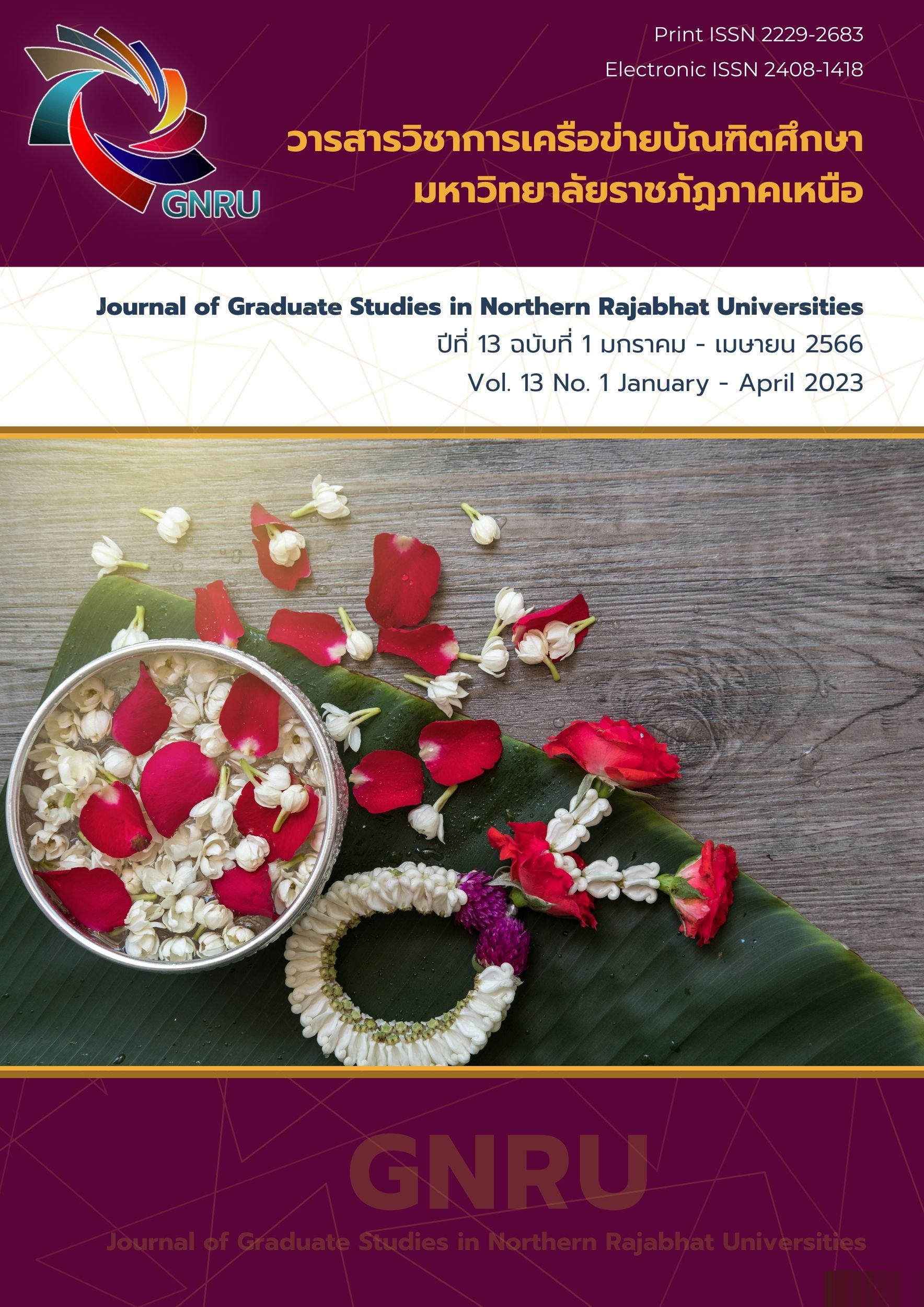THE COMPARATIVE STUDY OF THE EDUCATION MANAGEMENT IN ARTIFICIAL INTELLIGENCE PROGRAMS OF THE TOP UNIVERSITIES IN THAILAND AND WORLD CLASS UNIVERSITIES IN UNITED STATES OF AMERICA
Main Article Content
Abstract
The objectives of this study were to study and compare the education management in the artificial intelligence courses of public autonomous universities in Thailand and the United States of America (USA). The research model is qualitative research. The 35 key informants were divided into 3 groups: 1)10 relevant faculty members, namely the dean, the department head, the course president, 2) a group of 10 students studying artificial intelligence courses, and 3) a group of 15 people working in artificial intelligence field, using a purposive selection method. The data were collected by using an in-depth interview with inductive analysis. Also, the documentary research on artificial intelligence courses of world-class universities in USA was conducted. The results showed that there were differences in 9 aspects: curriculum; student potential enhancement; teachers’ and students’ qualifications; learning atmospheres, teaching techniques and technologies; organization cooperation; budget priorities; society and ethics; management and policy; and others such as environment, values, and learning resources. There were three main factors affecting the efficiency of students the most: learning resources, teachers’ and students’ qualifications. Also, AI technology is fast-changing, so the curriculum should be kept up-to-date.
Article Details
References
กุลธิดา รุ่งเรืองเกียรติ. (2561). Master AI คุณครูปัญญาประดิษฐ์. https://waymagazine.org/classroom_33/?fbclid=IwAR3T-v-e2JJCrjv9sMHH9VmlKEMNw4XEQXlw9aQWqKg3imiZ691o0HNXkik.
วสิริทิพย์ ฉลอง. (2561). AI นวัตกรรมใหม่กับธุรกิจธนาคาร. ศูนย์วิจัยเศรษฐกิจ ธุรกิจ และเศรษฐกิจฐานราก ธนาคารออมสิน.
ศูนย์สารสนเทศอุดมศึกษา สำนักงานคณะกรรมการการอุดมศึกษา. (2563). เดินหน้าจัดทำแผนแม่บทปัญญาประดิษฐ์แห่งชาติเพื่อการพัฒนาประเทศไทย. https://www.nectec.or.th/news/ news-pr-news/national-ai-2021.html
สุริยัน เขตบรรจง. (2564). เทคโนโลยีปัญญาประดิษฐ์ AI กับการแบ่งกลุ่มข้อมูลผลสัมฤทธิ์ทางการเรียนของนักเรียนช้ันประถมศึกษาปีท่ี 5 โดยใช้วิธีการเรียนรู้การแบ่งกลุ่มข้อมูลชนิด K- mean. วารสารครุศาสตร์, 49(2), 1-11.
China Institute for Science and Technology Policy at Tsinghua University. (2018). China AI Development Report, 2018.https://indianstrategicknowledgeonline.com/web/China_AI _ development_report_2018.pdf
Nature Index. (2020). Top 100 academic institutions in artificial intelligence. https://www.natureindex.com/supplements/nature-index-2020-ai/tables/academic
Sciences., H. J. A. P. S. o. E. a. A. (2021). Academics. https://www.seas.harvard.edu/academics
Technology, M. I. o. (2021). Academics. https://bcs.mit.edu/academic-program/course-9-brain-and-cognitive-sciences
University, S. (2020). Artificial Intelligence Programs. https://online.stanford.edu/artificial-intelligence


